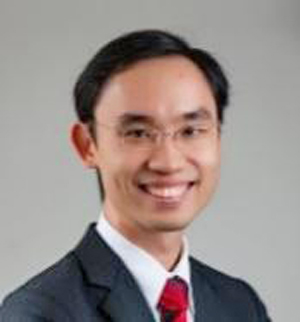Lee Yun-Han
KUCHING: Malaysian Millennials and Gen Z are unanimous in ranking adaptability and flexibility as a characteristic for success in a post-pandemic economic environment, Deloitte Malaysia observed.
According to Deloitte’s 2021 Millennial and Gen Z Survey, the Millennials and Gen Zs in Malaysia are unanimous in ranking adaptability and flexibility as the number one characteristic for success in a post-pandemic economic environment, ahead of role expertise and technological savviness.
Currently, a majority of the Malaysian workforce comprises of Millennials (born between 1981 to 1994) and Gen Z’s (born from 1995 onwards).
Vera Tan
“As such, Malaysian companies need to take advantage of this period of incredible change to re-think current management practices to transform themselves into what we call an ‘Adaptable Organisation’,” Deloitte Malaysia consulting director Lee Yun-Han and consultant Vera Tan commented in a joint press statement.
“Becoming an adaptable organisation is a fundamental shift in operating philosophy where large global organisations behave more like startups, with modernised people practices that enable enterprise agility. An adaptable organisation requires leaders to look at their business through five layers – ecosystem activation, organisational adaptability, mission-focused agile teams, pioneering leaders, and the transformation of individual roles as people work with new technology,” they said.
They also pointed out that an integrated and collaborative ecosystem is the first layer of an adaptable organisation.
How work is organised is the second layer: Adaptability demands a shift away from organising capabilities in a hierarchical way towards a network of multi-disciplinary organisations. This embraces natural connections, avoiding more traditional approaches that often force organisations to work purely functionally or in a matrix environment without understanding the impact on how humans interact naturally.
Mission-focused agile teams represent the third layer of organisational adaptability. A greater emphasis on agile teams can unlock individual performance through team diversity and new ways of working.
“Leaders of an adaptable organisation form the fourth layer of adaptability as they set the direction of how work is managed and led. In an adaptable organisation, leaders serve as inclusive orchestrators, instead of technical task masters, to unlock the full potential of diverse skill sets. Leaders must be versatile, able to energise, empower, and connect people across the ecosystem and lead any team in any context.
“The last layer of adaptability, individuals, allows for the unlocking of true individual resilience through flexible talent programs, enabling employees to want to learn, grow, and develop in their workplace. This is where innovative talent approaches can come in to elevate a shifting and diverse workforce that includes humans and machines,” they explained.
“Many leaders are tempted to slide back into old habits to meet existing business goals. Be ready to get called out.
“Adaptability is a business goal, and a long term one at that. At times, participative and democratic outcomes were not achieved through fully democratic processes, so leaders must embody these principles to ensure that employees feel empowered to also adopt them.
“True change takes time. Leaders must be reminded to stay the course, and treat transformation as a business goal – one that might not yield results in one quarter, but one that will strengthen the organisation to be at the forefront of their industry’s future,” they remarked.

